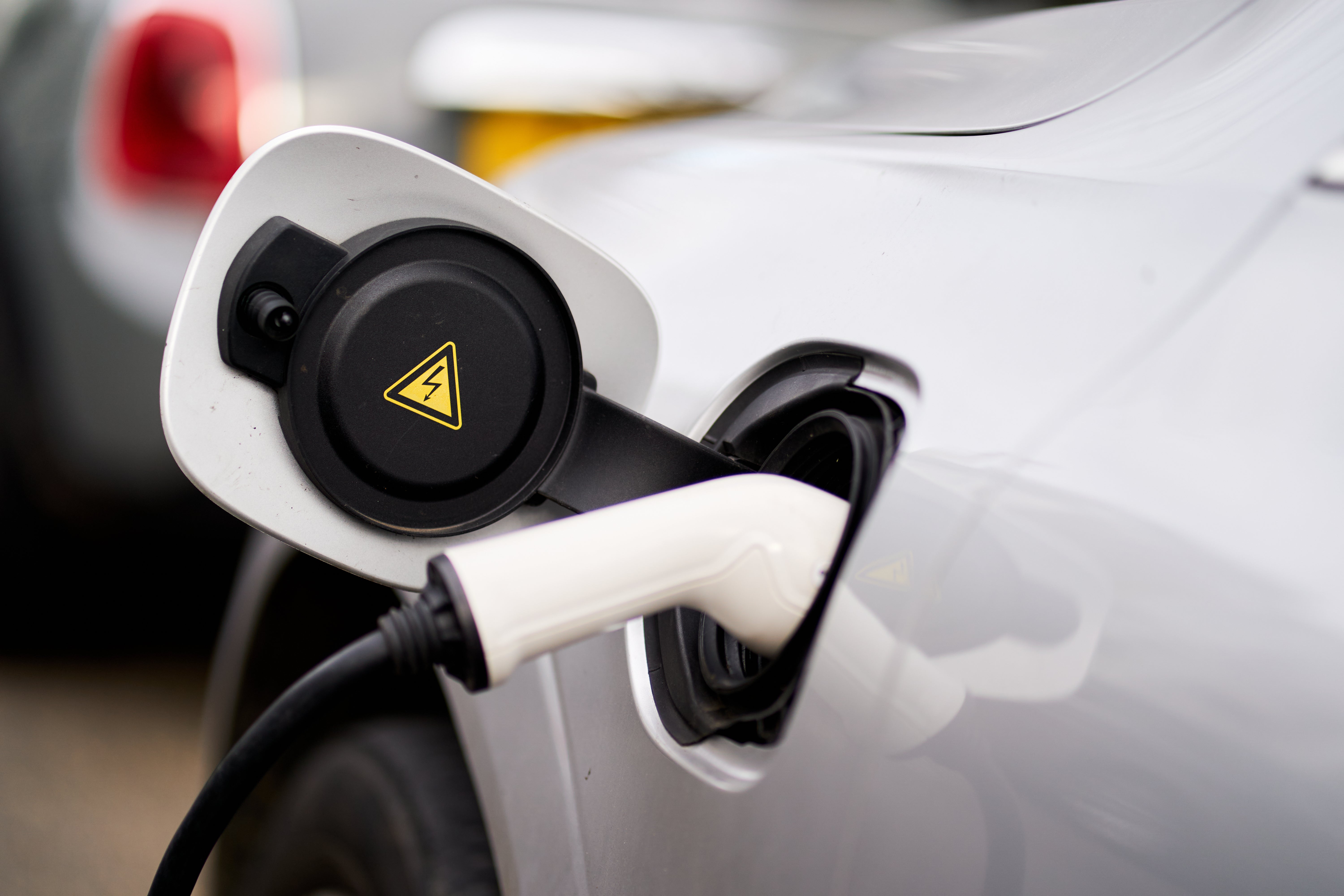Electric vehicle running costs are closing in on petrol, threatening green car rollout and emissions targets
Charging from the public network attracts four times the VAT rate of home charging. That needs to change, writes James Moore


Britain’s journey toward a ban on new petrol cars from 2030 has hit a pothole – and it is an absolute suspension-wrecker.
Electric vehicles (EVs) remain expensive for upfront costs and even the top-end models don’t have the range of petrol-powered alternatives.
Of course, they don’t pump carbon dioxide and other noxious gases into the environment, which is a big selling point for those of us concerned about the future of the planet our children are going to have to live on.
They also used to offer a payoff in economic terms through their favourable tax treatment and their much cheaper running costs. The energy shock has changed the calculus, and not in a good way.
The RAC says public rapid EV charging costs have risen by a staggering 42 per cent in just four months. Average prices for ultra-rapid charging – the sort you really want on longer journeys – have jumped by 25 per cent since May.
It now costs drivers an average of £32.41 to rapid-charge a typical family-sized electric car with a 64kWh battery to 80 per cent, an increase of nearly £10 since May and £13.59 from a year ago.
The motoring organisation says it is concerned that the sudden jump in the cost of charging on the public network risks putting people off from going electric. And we need people to go electric. The more electric vehicles on the road, the more investment there will be in things such as charging points, which is very necessary given the charring deserts some parts of the UK have become.
The RAC is right to raise the issue. There will clearly be some consumers who, once they have run the numbers, opt for petrol when they might otherwise have gone electric.
This poses a real threat to the UK’s current EV plans and the very necessary effort to reduce emissions and improve the dismal air quality of the nation’s cities.
Those lucky enough to have their own driveways can avoid the worst of the price shock if they do the majority of their charging via a home charging point. The electricity from them is covered by the government’s price guarantee. Based on a 40mpg car, and an electric model with a 64-kilowatt battery, the cost of home charging comes out at around 9p a mile, compared to the petrol cost of roughly 19p.
The trouble is, around 30 per cent of UK homes lack a driveway, which is necessary to be able to charge at home leaving them at the mercy of the public network, where, using the same variables, the cost of rapid charging comes out at 13.5p and rising.
It isn’t impossible to see the two types of fuel approaching parity, which would represent a kick in the guts for the UK’s EV policy goals.
One reason for the high cost of public charging is that it incurs 20 per cent VAT. The fuel used by EVs charged at home is taxed at the 5 per cent rate paid by domestic consumers.
This is obviously grossly unfair to those restricted to the public network. They shouldn’t be taxed for the lack of a driveway.
The support package the government is offering to businesses may ease the problems faced by those restricted to public charging points. But it is only good for six months.
The government should be prepared to level the VAT playing field at the very least. But it doesn’t seem minded to think about ways that the tax system could be used to encourage good policies. It doesn’t seem minded to do much thinking at all.
It may take a change of government to achieve a change in this policy. By then, Britain will be playing catch-up with a looming deadline on a key environmental target.
Join our commenting forum
Join thought-provoking conversations, follow other Independent readers and see their replies
Comments
Bookmark popover
Removed from bookmarks